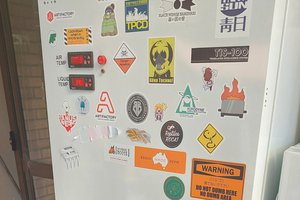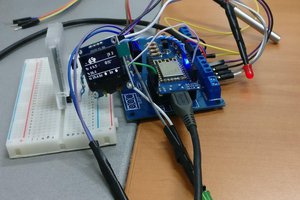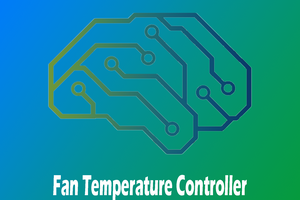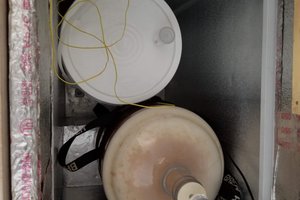This program is used to control a window fan. Use the controls to set a temperature that the fan will turn off. No more freezing at night!
UP and DOWN controls the temperature set point. SELECT will toggle the fan on and off.
Display shows:
Temperature set point, Current temperature
On/Off status, Humidity, Feels Like temperature
 rockfishon
rockfishon
 Mild Lee Interested
Mild Lee Interested
 Carmine Moleti
Carmine Moleti
 Adam Redfern
Adam Redfern
 Krockwell
Krockwell